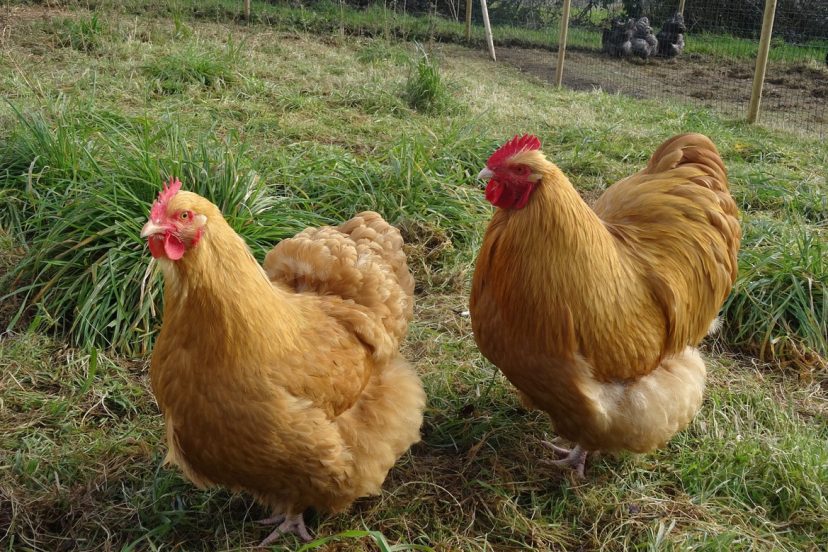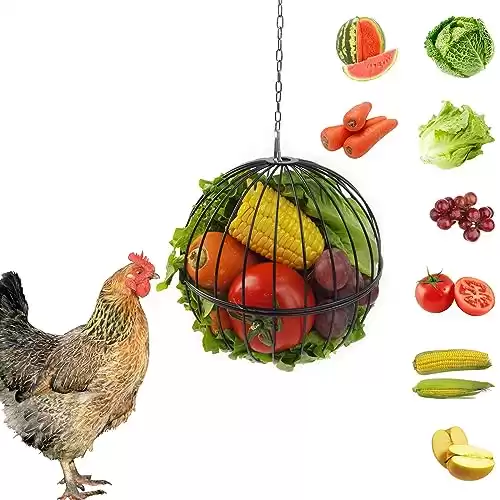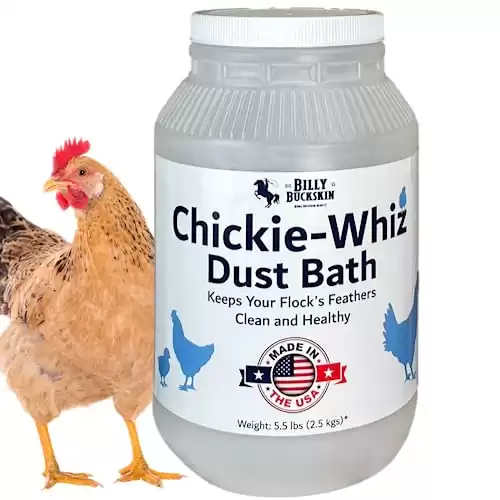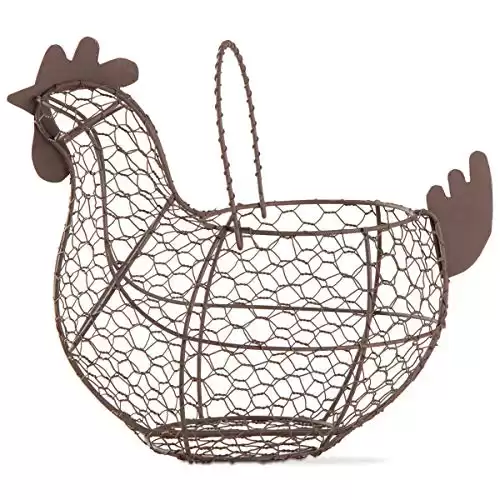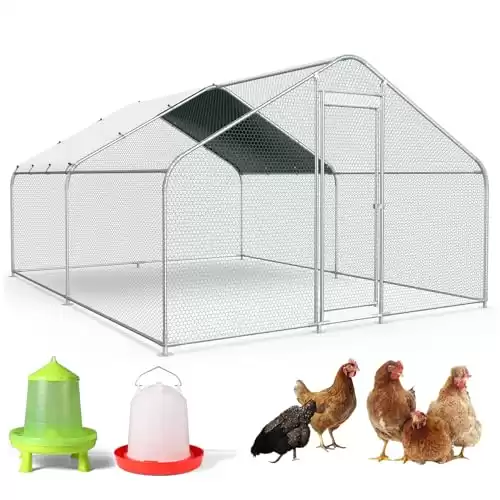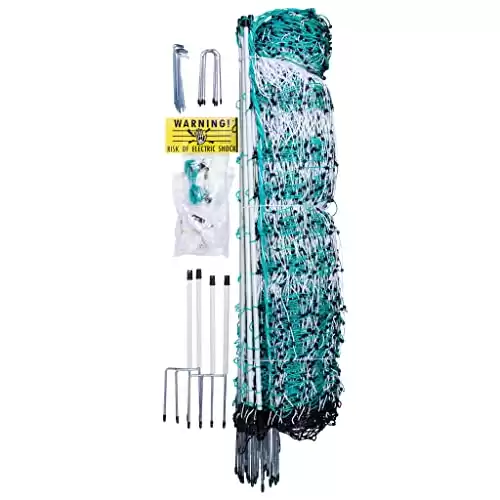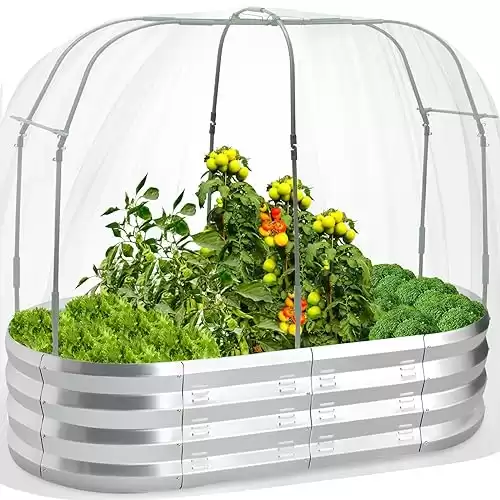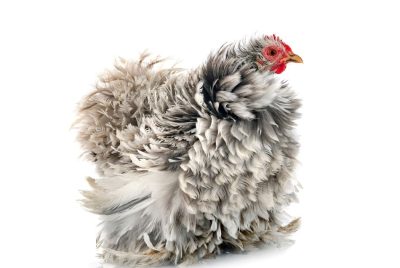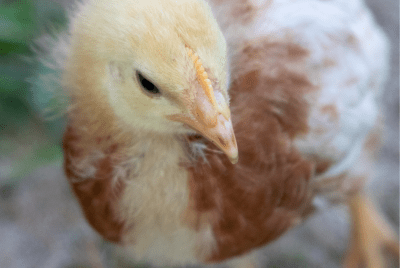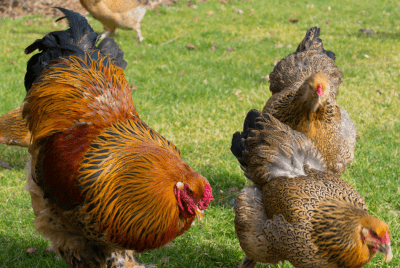Buff Orpington Chickens
Buff Orpington Chickens
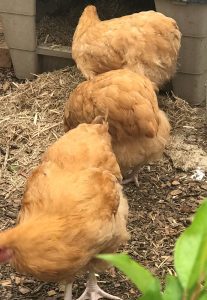
1. Introduction to Buff Orpington Chickens
Buff Orpington chickens are charming birds originating from Orpington, England. They are not only beautiful with their fluffy, golden plumage but also possess a delightful temperament. They’re the ideal choice for both novice and experienced poultry keepers.
1.1. Overview and History
Buff Orpingtons were first developed in the late 19th century by William Cook. He aimed to create a dual-purpose breed (good for both eggs and meat) that could withstand England’s cold, damp climate. The result was a hardy, resilient bird with a striking buff color.
1.2. Characteristics and Appearance
Buff Orpington chickens are renowned for their striking appearance and robust characteristics. They exhibit a deep, rich golden buff color, which is consistently uniform across their plumage. Their feathers are broad, soft, and profuse, giving them a fluffy, rounded silhouette. This breed is characterized by a heavy, broad body and a short, curved back, contributing to their distinctive, full-bodied look. Their combs, wattles, and earlobes are bright red, creating a striking contrast against their golden feathers. The eyes are a deep, expressive red or bay color, and their beaks are short and strong, usually a light horn color. Their legs are clean of feathers, showing a pinkish-white skin, and they have four toes on each foot.
These physical traits not only contribute to their aesthetic appeal but also signify their robust health and adaptability to various environments. The overall appearance of Buff Orpingtons exudes an aura of calm and gentleness, which is reflective of their temperament, making them a favorite among poultry enthusiasts for both their beauty and their friendly, docile nature.
2. 8 Reason To Choose Buff Orpingtons for Your Flock?
Buff Orpington chickens are an excellent choice for both novice and seasoned poultry enthusiasts. Their friendly and docile temperament makes them ideal for family environments and those new to chicken keeping. These birds are not only easy to handle but also less prone to pecking and aggression, ensuring a peaceful flock. Additionally, their robust egg-laying capacity, producing large, brown eggs, adds significant value. Their fluffy, golden plumage is not just visually appealing but also indicates a breed well-suited for colder climates. These traits, combined with their adaptability and motherly nature, make Buff Orpingtons a versatile and rewarding addition to any flock. Their calm demeanor and low maintenance requirements cater to a wide range of keepers, from hobbyists to those seeking sustainable living practices.
2.1. Temperament and Behavior
Buff Orpington chickens are celebrated for their exceptionally calm and friendly temperament, making them a favorite among backyard poultry enthusiasts. These birds are characterized by their docile nature, often showing a high level of affection towards their human caretakers. They enjoy being handled and petted, which makes them particularly suitable for families with children or for those seeking interactive pets. Due to their gentle disposition, they are less prone to pecking conflicts within the flock, promoting a peaceful and harmonious coop environment.
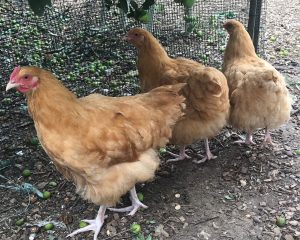
In addition to their affable nature, Buff Orpingtons are also known for their intelligence and curiosity. They are often observed exploring their surroundings with keen interest, which can make them quite entertaining to watch. This breed is adaptable to both free-range and confined living conditions, although they do thrive with more space to forage and roam.
Their behavior also reflects a certain resilience and hardiness, as they tend to cope well with different climatic conditions. However, they do particularly well in cooler climates due to their thick feathering. Buff Orpingtons are also recognized for their maternal instincts. Hens often exhibit strong brooding behaviors and are known to be excellent, nurturing mothers to their chicks. This strong maternal instinct combined with their overall friendly and easy-going demeanor makes them an ideal choice for those interested in breeding and raising chicks. Their consistent and predictable behavior patterns make them a reliable and enjoyable breed for both novice and experienced chicken keepers.
2.2. Egg Production and Quality
Buff Orpington chickens are esteemed for their egg-laying capabilities, consistently producing a significant quantity of eggs. They typically lay large, brown eggs, with a hen capable of laying approximately 3-4 eggs per week, translating to around 150-200 eggs annually. The eggs are not only sizeable but also have a reputation for their excellent quality, featuring strong shells and deep yellow yolks, rich in flavor. Buff Orpingtons start laying at about six months of age and are known for their extended laying period, often continuing to produce eggs consistently for several years. Their reliability in egg production, combined with the quality of the eggs, makes them an ideal choice for those looking to raise chickens for home egg consumption. Furthermore, these hens possess a natural brooding instinct and are often willing to sit on and hatch their own eggs, which can be beneficial for those interested in naturally expanding their flock.
3. Housing and Space Requirements
3.1. Coop Design and Size
Designing the right coop for Buff Orpington chickens is crucial for their well-being and productivity. These birds, with their substantial size and fluffy feathers, require a spacious and well-ventilated coop to prevent overcrowding and overheating.
Each chicken should have at least 4 square feet of coop space. A good rule of thumb is to provide ample room for them to move, stretch, and roost comfortably without feeling cramped. The coop should have sturdy roosting bars, as Buff Orpingtons enjoy roosting off the ground.
Adequate ventilation is essential to maintain air circulation and prevent moisture buildup, which is particularly important for this breed due to their dense feathering. However, it’s crucial to ensure that the ventilation doesn’t create drafts, as these birds can be sensitive to cold winds.
Nesting boxes should be cozy and private, with one box for every three to four hens, to encourage egg laying. Proper insulation is also key for climates with extreme temperatures. The coop’s design should prioritize cleanliness and ease of access for regular maintenance, as a clean environment is vital for the health of the chickens. Overall, a well-designed coop for Buff Orpingtons will provide a safe, comfortable, and hygienic living space, promoting their health, happiness, and egg-laying efficiency.
3.2. Outdoor Space and Fencing
Providing ample outdoor space and proper fencing is crucial for Buff Orpington chickens. These birds thrive in environments where they can roam and forage, which is essential for their physical health and psychological well-being. A spacious, predator-proof fenced area ensures their safety while allowing them the freedom to engage in natural behaviors like dust bathing, pecking, and scratching.
Strong, durable fencing is necessary to protect them from common predators like foxes and hawks. The outdoor area should include shaded sections to shield them from direct sunlight, especially in warmer climates, as their dense feathers can make them prone to overheating. Additionally, including elements like perches and dust baths in the outdoor enclosure can further enhance their quality of life, promoting natural activities and helping maintain feather health. Prioritizing a well-designed outdoor space for Buff Orpingtons not only secures their safety but also enriches their living environment, contributing to happier, healthier chickens.
4. Feeding Buff Orpington Chickens
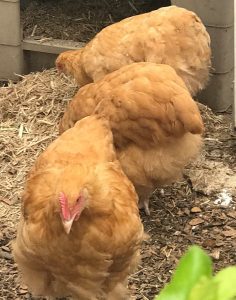
4.1. Nutritional Needs
Feeding Buff Orpington chickens a balanced and nutritious diet is vital for their health and egg production. These chickens require a diet rich in proteins, carbohydrates, vitamins, and minerals. Protein is essential for growth, feather development, and egg production, while carbohydrates provide them with necessary energy. It’s important to include a variety of greens, grains, and protein sources. Calcium, especially in the form of oyster shells or similar supplements, is crucial for strong eggshells. Additionally, access to clean, fresh water at all times is essential. Feeding them a commercial poultry feed formulated for layers ensures a well-rounded diet, which can be supplemented with kitchen scraps and garden produce for additional nutrients and variety. Avoiding foods that are toxic to chickens, like chocolate, avocado, and onions, is also critical. Proper nutrition not only supports their physical health but also ensures consistent, high-quality egg production.
4.2. Recommended Feed Types
For Buff Orpington chickens, a variety of feed types is recommended to maintain their health and optimize egg production. Starting with a high-quality layer feed is essential, as it provides a balanced mix of nutrients tailored for egg-laying hens. This should be the primary component of their diet. Supplementing with grains like corn or wheat can offer additional energy, especially in colder months. Greens, vegetables, and occasional fruits contribute to a well-rounded diet, offering vitamins and minerals. Providing grit is also important to aid in digestion. Treats like mealworms or small amounts of kitchen scraps can be given sparingly. Always ensure feed is fresh and free from mold or contaminants. Fresh, clean water should be available at all times. This combination of feeds ensures that Buff Orpingtons receive all necessary nutrients, supporting their overall health and robust egg production.
5. Health and Wellness
Maintaining the health and wellness of Buff Orpington chickens involves proactive and attentive care. Regular health checks are crucial to identify and address potential issues early. Due to their dense feathering, they are susceptible to parasites like mites and lice; thus, routine inspections and treatments are necessary. Providing a balanced diet and clean, fresh water is fundamental to prevent obesity and other health problems. A clean, dry, and well-ventilated living environment reduces the risk of respiratory ailments and bacterial infections. Vaccinations and prompt veterinary care for any signs of illness are also key. Additionally, providing enough space for exercise and activities helps maintain their physical health and reduces stress, contributing to a thriving and productive flock.
5.1. Common Health Issues
Buff Orpington chickens, like other breeds, are prone to several common health issues. Due to their heavy build and voracious appetite, they are particularly susceptible to obesity, which can lead to a range of health problems, including decreased egg production and increased strain on their legs and heart. Parasitic infestations, such as mites and lice, are common due to their dense feathering. Respiratory issues can also occur, especially in damp or poorly ventilated environments. Additionally, they may face the typical poultry ailments like egg binding, bumblefoot, and vent prolapse. Regular health checks, a balanced diet, clean living conditions, and adequate space are essential to mitigate these risks and ensure the overall health and longevity of Buff Orpington chickens.
5.2. Preventative Care and Treatments
Effective preventative care for Buff Orpington chickens involves several key practices. Regular health checks are essential to catch and address issues early. A balanced diet and clean, fresh water help prevent obesity and related health problems. Keeping the coop clean, dry, and well-ventilated minimizes the risk of respiratory ailments and parasitic infestations. Implementing routine parasite control measures, such as dusting for mites and lice, is crucial. Providing vaccinations against common poultry diseases and ensuring prompt veterinary care for any illness are also important. Additionally, maintaining a stress-free environment with adequate space and enrichment activities supports their overall well-being and immune system, further preventing health issues.
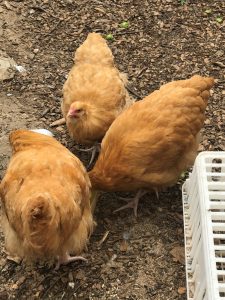
6. Breeding and Raising Chicks
6.1. Breeding Tips
Successful breeding of Buff Orpington chickens requires careful planning and attention to detail. Select healthy, robust birds with good temperament and characteristics typical of the breed for mating. Prioritize genetic diversity to avoid inbreeding issues. Ensure hens and roosters are well-fed with a nutritious diet to enhance fertility and egg quality. Provide a calm and comfortable environment, as stress can negatively impact breeding success. Monitor the hen’s health closely during the breeding season, especially for signs of egg binding or other reproductive issues. Once eggs are laid, either use a reliable incubator or allow a broody hen to naturally incubate them, ensuring she is well-cared for throughout the process. After hatching, separate the chicks from the main flock to protect them from potential harm and monitor their growth and health regularly. Adhering to these guidelines can lead to a successful breeding program, resulting in healthy and vigorous offspring.
6.2. Caring for Chicks
Proper care for Buff Orpington chicks is vital for their healthy development. Initially, provide a warm, safe brooder with a temperature-controlled heat source to keep them comfortable, gradually reducing the temperature as they grow feathers. Use a high-protein chick starter feed to ensure proper growth and development. Clean, fresh water should be available at all times, in containers that prevent the chicks from getting wet or drowning. Keep the brooder clean and dry to prevent diseases. Regularly check for signs of illness or distress. Socialization is also important; gentle handling helps the chicks become accustomed to humans. As they grow, gradually introduce them to different types of food and outdoor environments, preparing them for integration into the main flock. This careful attention in the early stages lays the foundation for their health and well-being as mature chickens.
7. Challenges and Considerations
7.1. Climate Considerations
Climate plays a significant role in the well-being of Buff Orpington chickens. Their thick feathering makes them well-suited for cooler climates, providing natural insulation against cold temperatures. However, this same attribute can be a drawback in hot weather, as they are prone to overheating. In warmer climates, it’s crucial to provide ample shade, ventilation, and access to fresh water to help them regulate their body temperature. During extreme heat, additional measures like misting systems or fans may be necessary. In cold conditions, while they generally fare well, ensuring their coop is draft-free and dry is important to prevent frostbite and respiratory issues. Adapting their living environment to suit seasonal changes is key to maintaining their health and comfort throughout the year.
7.2. Predators and Safety Measures
Protecting Buff Orpington chickens from predators is crucial for their safety. Common threats include foxes, raccoons, hawks, and neighborhood dogs. To safeguard your flock, ensure the coop and run are secure with sturdy, predator-proof fencing, including overhead protection. The use of hardware cloth instead of chicken wire provides better defense against smaller predators. Coop doors should be locked at night to prevent nocturnal predator attacks. Elevating the coop off the ground can deter some ground predators. Consider installing motion-activated lights or alarms to scare off potential intruders. Regularly inspect the enclosure for any signs of attempted entry or weak spots, and reinforce as needed. Providing a safe and secure environment is essential to prevent predator attacks and ensure the well-being of your Buff Orpington chickens.
8. Community and Support
8.1. Joining Chicken Enthusiast Groups
Joining chicken enthusiast groups offers invaluable support for Buff Orpington owners. These communities, both online and in-person, provide a platform for sharing experiences, seeking advice, and learning from seasoned poultry keepers. Local poultry clubs often organize meet-ups, workshops, and shows, fostering a sense of community. Online forums and social media groups offer a wealth of knowledge and resources accessible from anywhere. Engaging with these groups enhances the chicken-keeping experience through shared learning, support, and camaraderie among fellow enthusiasts.
8.2. Online Resources and Forums
Online resources and forums are treasure troves of information for Buff Orpington chicken enthusiasts. Websites like Backyard Chickens offer extensive articles, guides, and user experiences, catering to both novices and experts. Dedicated forums provide a platform for asking questions, sharing tips, and connecting with a global community of chicken keepers. Social media groups and YouTube channels offer visual insights into caring for these birds. These online platforms are invaluable for continuous learning, troubleshooting, and staying updated on best practices in Buff Orpington chicken care.
9. Personal Experiences and Advice
9.1. Success Stories
Raising Buff Orpington chickens has been a journey filled with rewarding experiences. One notable success story involves a Buff Orpington hen named Daisy, who exhibited exceptional motherly instincts. Despite being a first-time mother, Daisy successfully hatched and raised a brood of healthy chicks, showcasing the breed’s natural brooding and nurturing capabilities. Another triumph was adapting the coop to better suit their needs, resulting in happier, more active birds and a noticeable increase in egg production. These stories highlight the resilience and adaptability of Buff Orpingtons, reinforcing their reputation as a delightful and productive breed for poultry enthusiasts.
9.2. Lessons Learned
Raising Buff Orpington chickens has taught me valuable lessons. One key insight is the importance of regular health checks and parasite control, vital for maintaining their well-being. I learned that a balanced diet and proper coop conditions significantly impact their health and egg production. Understanding their behavior and social dynamics helped create a harmonious flock. Additionally, preparing for climate variations and predator threats is crucial. These experiences emphasized the importance of proactive, attentive care and adapting to the unique needs of Buff Orpington chickens for successful poultry keeping.
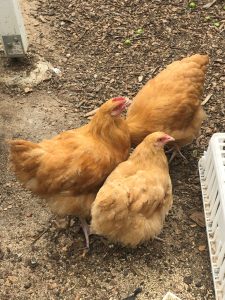
10. Pros and Cons of Raising Buff Orpingtons
10.1. Pros:
Temperament: Buff Orpingtons are known for their gentle, friendly nature, making them ideal for families and beginner chicken keepers.
Egg Production: They are reliable layers, producing a good number of large, brown eggs.
Appearance: Their beautiful, fluffy golden plumage makes them visually appealing.
Cold Tolerance: Their dense feathers provide excellent cold resistance.
Brooding: Hens have strong maternal instincts, often successfully hatching and raising chicks.
Adaptability: They adapt well to both free-range and confined environments.
Social Cohesion: Their calm demeanor reduces pecking order issues within the flock.
10.2. Cons:
Heat Sensitivity: Their thick feathers can lead to overheating in hot climates.
Predator Vulnerability: Due to their size and temperament, they can be easy targets for predators.
Space Needs: They require ample space due to their size, which might not suit small backyards.
Health Management: Prone to obesity and parasitic issues, necessitating vigilant health management.
Maintenance: Their dense plumage requires regular checks for parasites and cleanliness.
Broodiness: Their tendency to go broody can interrupt egg laying cycles.
Resource Intensive: They may require more feed compared to lighter breeds.
In conclusion, Buff Orpingtons are a fantastic choice for those seeking a friendly, productive bird, but require careful management to address their specific needs and challenges.
11. Conclusion
Final Thoughts and Recommendations
In conclusion, Buff Orpington chickens are an excellent choice for both novice and experienced poultry keepers. Their friendly nature, robust egg production, and beautiful appearance make them a delightful addition to any flock. However, prospective owners should be prepared for their specific needs, including space requirements, health management, and climate considerations. Regular care and attention are key. I highly recommend Buff Orpingtons for anyone seeking a gentle, productive bird, and encourage joining supportive communities for guidance and shared experiences.
FAQs on Buff Orpington Chickens
1: How long do Buff Orpington chickens typically live? A: Buff Orpingtons have a lifespan of around 8-10 years, although this can vary based on care, diet, and environment.
2: Are Buff Orpington chickens good for beginners? A: Yes, their calm and friendly temperament makes them ideal for beginners.
3: How often do Buff Orpington hens lay eggs? A: They typically lay 3-4 eggs per week, depending on factors like age, health, and environment.
4: Can Buff Orpington chickens tolerate cold weather? A: Yes, their dense feathering makes them well-suited for colder climates.
5: Do Buff Orpingtons require a lot of space? A: I have found they do best with ample space due to their size, but they can adapt to smaller areas if necessary, as long as basic space requirements are met.
Chicken Tractor for Your Flock
7 Herbs for Natural Chicken Health Remedies

